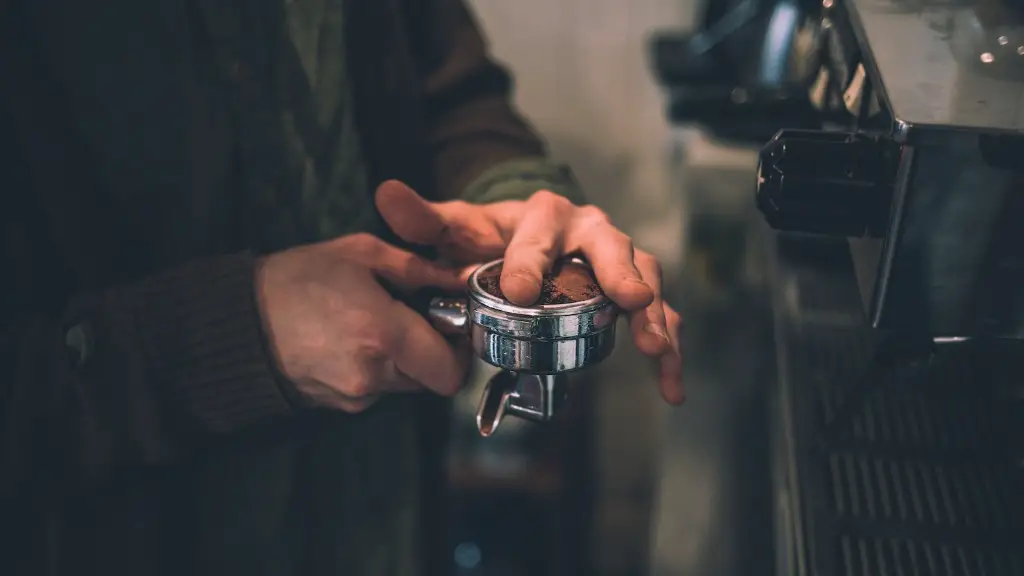Coffee is a staple beverage for many people, but for people with thyroid conditions, it can be a complicated choice. Levothyroxine is a type of thyroid hormone replacement drug that is used to treat hypothyroidism, and it is recommended to avoid caffeine while using it. So, how long after taking levothyroxine can a person enjoy a cup of coffee without affecting the medication?
The first step is to discuss with your physician any questions or concerns you may have about taking levothyroxine or introducing any caffeine into your diet. It’s important to understand the potential interactions of levothyroxine with caffeine, as well as the impact that caffeine can have on your thyroid health. Different bodies break down caffeine at different rates, so be sure to talk to your doctor to identify the timeline that is right for you.
In general, experts recommend that those taking levothyroxine wait at least an hour after taking the medication before drinking a cup of coffee. This allows time for the levothyroxine to be fully absorbed into the body, reducing the potential for interactions with the caffeine. However, everyone is different and it is important to talk to a healthcare professional about what is best for you.
Experts agree that there may not be a clear cut answer for how long after taking levothyroxine one should wait before drinking coffee. Ultimately, this is something that each individual needs to determine in consultation with their doctor. Different medications, body chemistry, and levels of caffeine intake can all affect how long one should wait to drink caffeine after taking levothyroxine. As a result, it is always best to speak with your health care provider to make sure that your caffeine consumption is safe and doesn’t interfere with your medication.
Coffee can have both positive and negative impacts on health when consumed before levothyroxine. On the one hand, research suggests that caffeine in the morning can help to improve alertness, focus, and motivation. However, too much caffeine can interfere with thyroid hormone absorption and cause unwanted side effects such as jitteriness, insomnia, and fatigue.
When it comes to consuming coffee after taking levothyroxine, it’s important to remember that less is more. Enjoy your cup of coffee but don’t overdo it. Moderation is key. Consider limiting your daily caffeine intake to one or two cups and avoid drinking coffee too close to the time you take your medication.
Coffee and Hypothyroidism
People with hypothyroidism face additional challenges when it comes to caffeine consumption. Caffeine is known to interfere with the absorption of levothyroxine. In addition, studies suggest that caffeine may slow down the conversion of the inactive thyroid hormone T4 to the active T3 hormone, which can lead to an underactive thyroid.
Therefore, it is important for those with hypothyroidism to drink coffee in moderation and to make sure they wait a sufficient amount of time after taking their medication before consuming caffeine. As with any medication, it is best to contact your doctor if you have any questions or concerns.
Tips for Enjoying Coffee with Hypothyroidism
It is possible to enjoy coffee safely with a thyroid condition. Here are some tips for enjoying coffee when you are taking levothyroxine:
- Wait at least one hour after taking your medication before drinking coffee
- Limit your caffeine intake to one or two cups per day
- Avoid coffee within four hours of taking your medication
- Choose organic, low-acid coffee that is free from pesticides and herbicides
- Consider adding coconut milk or other nut milks for a healthier creamer alternative
- Avoid adding sugar, artificial sweeteners, or other sweeteners to your coffee
When it comes to enjoying coffee with a thyroid condition, it is important to talk to your doctor about the timing of your medication and what beverages are safe for you to have. While not everyone needs to avoid caffeine, it’s best to be as informed as possible when it comes to what is best for your individual health needs.
The Importance of Regular Testing
Regular blood tests are an important part of managing hypothyroidism. It is recommended to have your thyroid level tested every six months or as recommended by your doctor. This will help to identify any changes in your levels and allow you to adjust your mode of treatment.
While blood tests are the best way to monitor your thyroid hormones, there are also other methods to track your progress. Keeping track of changes in your energy levels and symptoms can help you identify any positive or negative reactions to certain foods or activities that may require further investigation.
Consulting with a professional to track your thyroid levels is important as well. They can assess factors such as stress levels, lifestyle, and medication history to provide a more tailored recommendation for managing your condition.
Finding the Right Balance
Managing a thyroid condition does not mean that you have to give up the occasional indulgence. The key is finding the right balance between enjoying the occasional cup of coffee and abiding by the right recommendations for your particular condition.
In conclusion, there is no definitive answer to how long after taking levothyroxine one should wait to drink coffee. It is best to talk to a healthcare professional to identify a timeline that is right for you and to make sure that your caffeine consumption is safe and doesn’t interfere with your medication.



